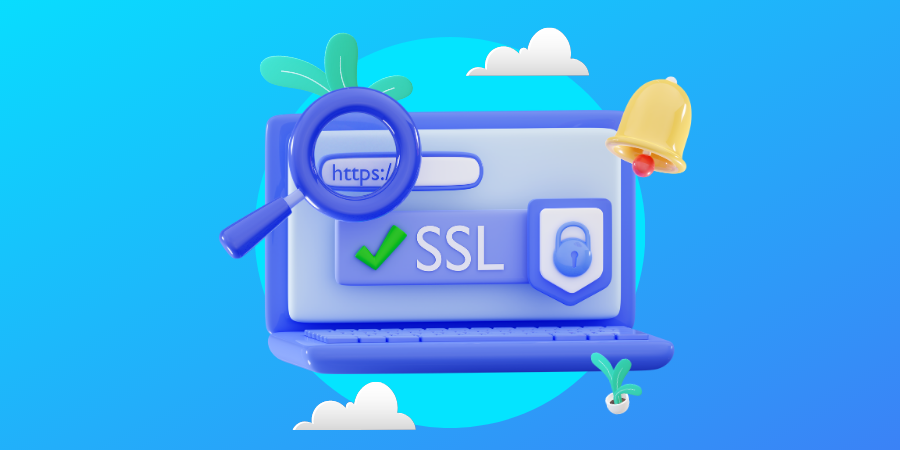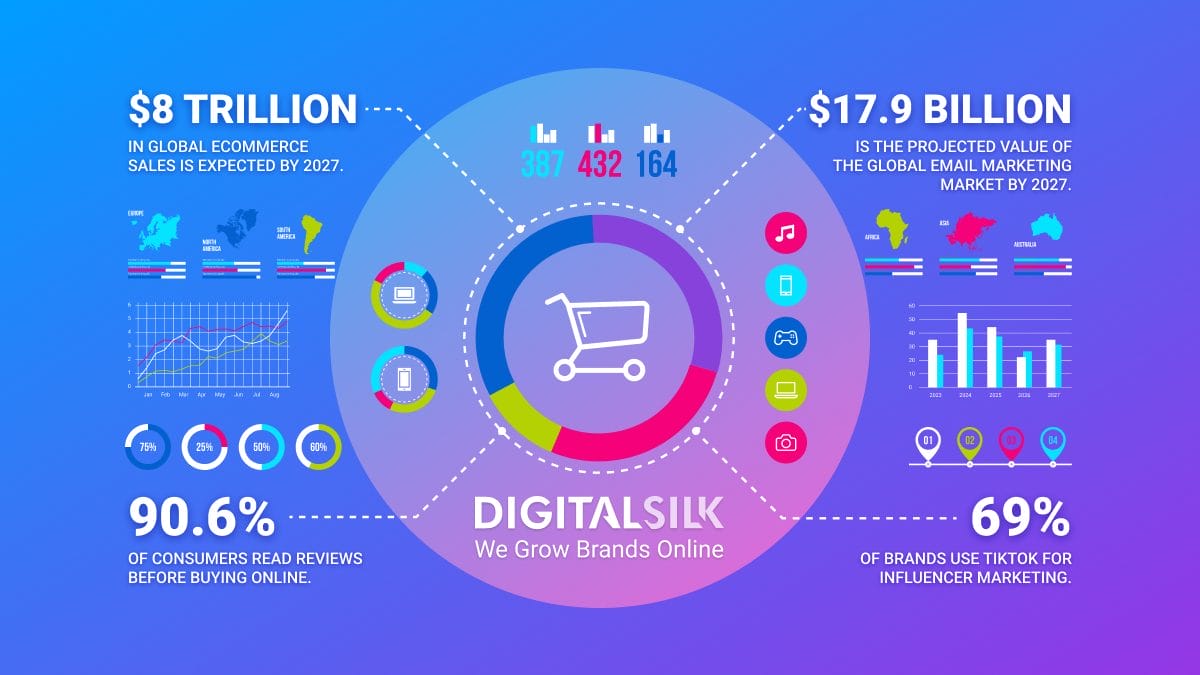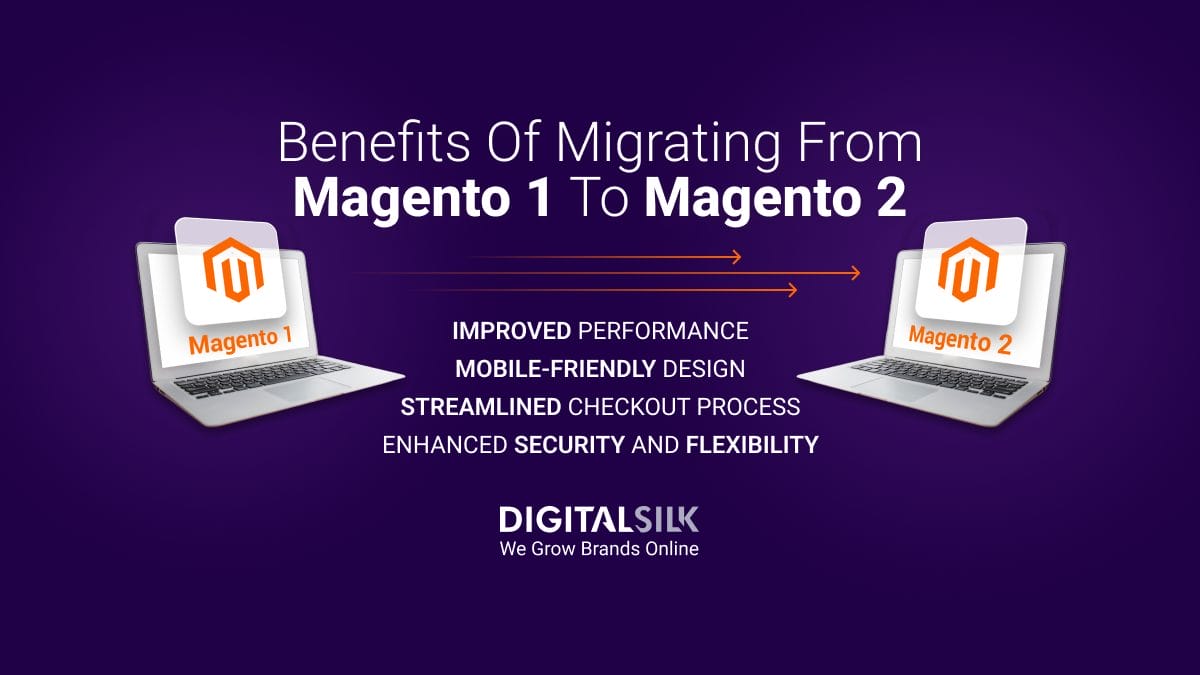A domain name is a vital part of any brand’s digital presence. It is your website’s internet home address.
Domain names you may be familiar with include Google.com, LinkedIn.com, Facebook.com and so on.
There are over 525 million registered domains worldwide, which means in order to be noticed by your prospects, you’ll need to come up with an excellent domain name.
This article features the top nine essential steps to take when deciding on a domain name.
We’ll also establish why having a good domain name is important for your online business and how to register one, once you decide on a winner.
Let’s begin!
Digital Silk develops custom sites. Request a quote
What Is A Domain Name?
A domain name is an address of a website and a user-friendly version of an Internet Protocol (IP) address — a website’s true online locator.
An IP address consists of a unique string of numbers and characters that point to a specific website.
Since IP addresses are hard to memorize and type correctly, the domain name is a letter and word-based alternative that internet users are able to handle more easily.
Typing a specific domain name into a browser calls the corresponding IP address and loads the website.
How To Choose A Domain Name For Your Business Website In 9 Steps
Choosing a domain name for your business website is not something that should be taken lightly.
It affects your future online reputation, along with your brand positioning and visibility. Your domain name is also something that should stay relevant in the future as your business grows.
So, whether working with a web design company or planning your website strategy yourself, here are the first steps to take to set your business up for online success:
1. Choose A Brandable Domain Name Over A Generic One
Your website domain name is how visitors will find and remember your business online.
A domain name is the foundation of your brand’s digital presence. A specific, brandable domain name stands out among your competitors, unlike a forgettable generic name.
A brandable name doesn’t have to have a specific meaning – think Google or YouTube – but it should be easy to pronounce and memorize and be unique.
The main goal here is to create a potential for the domain name to build brand value and recognition over time.
To come up with a brandable domain name:
- Make up new, catchy words that often prove successful, as Yahoo, Facebook, TikTok and Instagram can testify.
- Create combinations of existing words and random suffixes. A brandable domain name should be fun to say out loud and catchy so that it stays on people’s minds.
- Check out a thesaurus and use interesting, existing words that fit your business.
- Use domain name generators to create a unique name from initial domain ideas and keywords.
Speak with our experts. Set Up A Consultation
2. Do Not Use A Hyphen In Your Domain Name & Keep It Short
When deciding on your domain name, remember these two key points:
- Keep it short: How long should a domain name be? It should consist of less than 15 characters, if possible. That’s not including the top-level domain (TLD) also known as domain extension.
- Keep it simple: Don’t use hyphens, numbers, underscores, punctuation or other characters that might confuse your audience and make your web address difficult to remember.
Shorter domains and URLs in general tend to perform better online. SEO authority Backlinko found that shorter URLs rank better in Google search results.

3. Choose The Right Domain Extension For Your Brand’s Website
Choosing a “.com” top-level domain/extension is always advisable because it is the most common domain extension. In fact, 37% of all domains use it, because it is the most familiar and easiest to remember.
Most users will instinctively type in “.com” when they head to a website. Good alternatives to “.com” domains are “.org” or “.net” which are also quite frequently used.
However, there are some exceptions to the “.com” rule. For example:
- If your business is locally oriented, you should probably choose a local top-level domain. For example: If you’re located in the United States, use “.us”
- If you’re in Great Britain, try using “.uk”
- If you’re catering to the German market, use “.de”
This makes it clear to your target audience and local consumers that you are indeed located in their country, boosting your local brand awareness and trustworthiness.
However, if a version of your domain name with .com is available, you should still register it even if you are chiefly a local business. This is thinking long-term, because you may expand your business in the future and can still benefit from the memorable and familiar domain.
You can also link “.com” to your local domain so that whenever someone types in a .com version of the address it redirects them to the local domain.
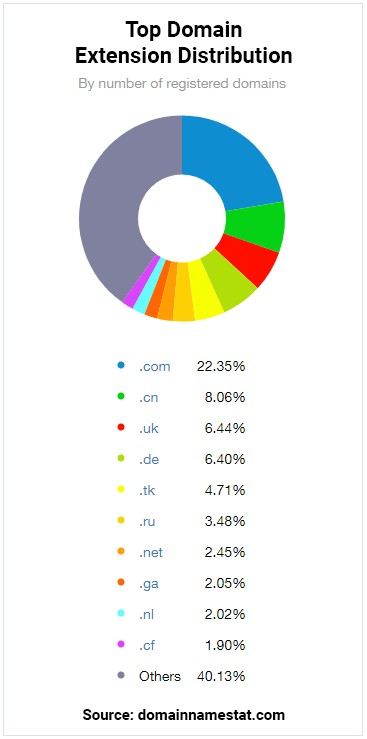
4. Consider Experimenting With Non-Traditional Domain Extensions
Numerous different top-level domains that didn’t exist until recently are becoming more popular.
These non-traditional domain extensions such as “.agency,” “.shop,” “.store,” “.club” and others are made to better reflect the nature and purpose of the website using them.
If your business is quite specific and aligns perfectly with any of these TLDs, you may consider registering a domain name with them.
Before opting for these non-traditional extensions, make sure that your domain registrar offers them.
5. Make Your Domain Name Easy To Type
When looking at the world’s most popular domain names, one thing comes to mind as their common denominator:
They are all very easy to type and spell.
Instagram, Facebook, Google, Twitter, YouTube, Apple… you can’t really go wrong typing these in your browser bar.
Your business website visitors should also have no problem typing your domain name into their browsers. You shouldn’t have to explain your website’s name in a casual conversation or detail how it’s spelled.
The worst thing that can happen is potential visitors mistyping your domain name and ending up on a different website, which might be a competitor’s.
6. Register The Misspelled Versions Of Your Domain
In addition to the above point, another way to safeguard your domain from being misspelled or mistyped is by registering several of the most likely or most common misspellings of your domain name.
Once you buy these domain names too, simply redirect them back to your proper domain name.
For example, if your domain name uses a double “t” – as in the word “letter” – you should probably register a name with a single “t” as well – in case someone types in “leter.”
7. Try Using Niche Keywords That Reflect Your Brand
Keywords are a primary method of improving a website’s SEO. However, stuffing keywords that apply to your industry is no longer a valid SEO website strategy and you’ll end up with an extremely long (and generic-sounding) URL.
If you do use a keyword, put it at the beginning of your domain name where it will be most effective at impacting your SEO ranking.
Use keyword research tools such as Google Keyword Planner, SEMrush or Ahrefs to find the most searched for and most valuable keyword that applies to your niche.
8. Think Long-Term
Changing domain names in the future will not only cost you money – you will lose your hard-earned search engine visibility and ranking and steady traffic of people who were used to your domain name.
Winning all of your customers back could be a painstakingly slow and difficult process. Visitors would need to get used to your new URL and Google and other search engines would take ages to get you back where you were in terms of SEO ranking.
A brand name is one of the biggest elements that define your business.
That’s why your domain name should be future-proof: in other words, you should get it right on the first try and keep your long-term vision in mind when choosing your domain name.
9. Source Ideas From Domain Name Generators
If simple brainstorming isn’t yielding any spectacular domain name ideas, you can always turn to numerous domain name generators online.
Some of these generators include:
These domain name generators are simple to use: by entering one or several keywords, you generate numerous domain name suggestions with valid and available domains that you can register.
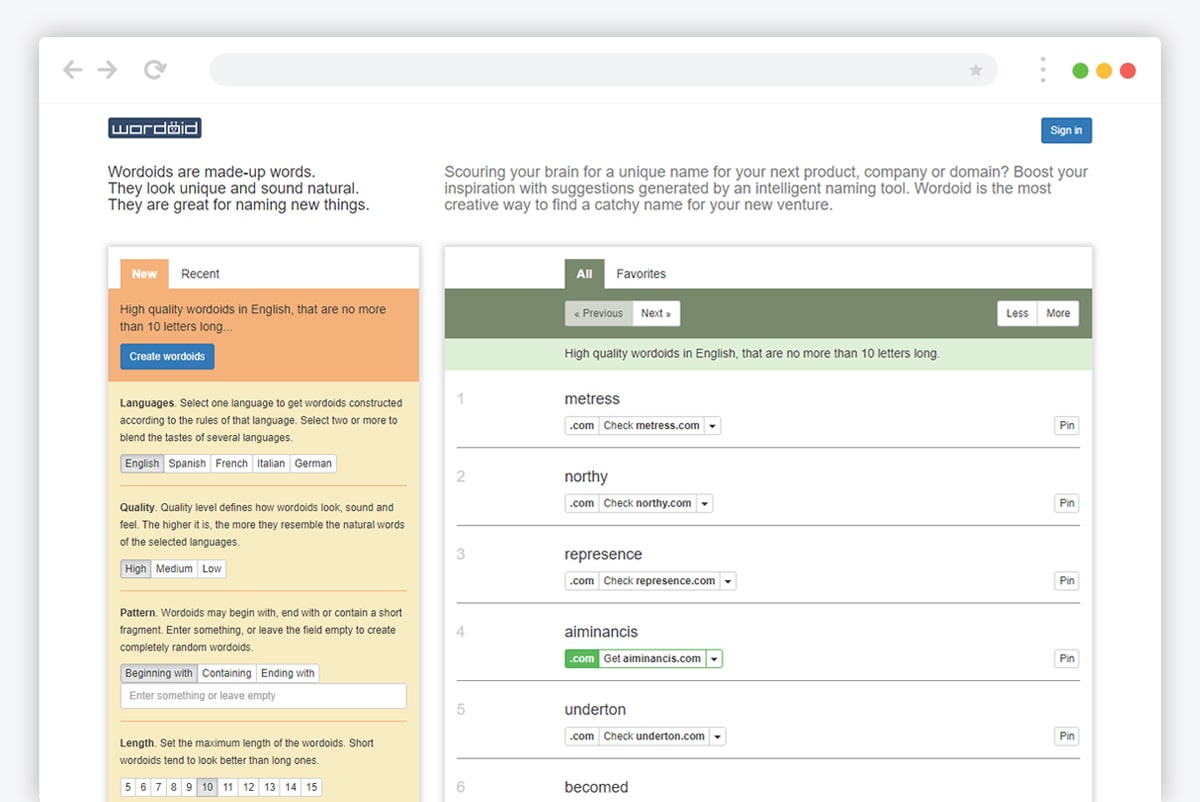
How To Pick A Domain Name
Once you have settled on a specific domain name, you should check to see if it is available or if someone has already registered it.
Establish whether there are any trademarks registered to the term that you would use in your domain name.
Your brand name should ideally be the same on your website domain and your social media channels, to build brand recognition and familiarity with your visitors and consumers. However, to avoid any legal issues, steer clear of names that have trademarks.
Whenever you get a good domain name idea, before registering it, Google the name and look through all of the first and second-page results for businesses that already use this name and operate in a similar industry.
How To Register Your Domain Name
Once you have crafted your ideal domain name and its extension and made sure it is available, it is time to buy/register it.
You can register your domain name when signing up for a hosting plan with the provider of your choice.
Alternatively, you can purchase a domain name separately from hosting providers through an independent domain registrar.
Hosting companies can also register a domain for you without you having to actually host the website with them, because you are entitled to get hosting from another place. If you pick up a domain name elsewhere, you can still connect it to your new or existing host.
Some of the domain name generators we have listed in step #9 above provide domain name registering services.
Depending on your chosen domain name, the cost of registering may range from $10 for the most common to several hundred or several thousand dollars per year for the most popular and wanted domains. Unusual domain extensions like “.bio” or “.it” may incur additional costs.
Don’t forget – in most instances, you will have to renew your domain name every year with the same place you bought it. Certain registrars and hosting companies provide packages that include the holding of a domain name for several years and have different renewal fees.
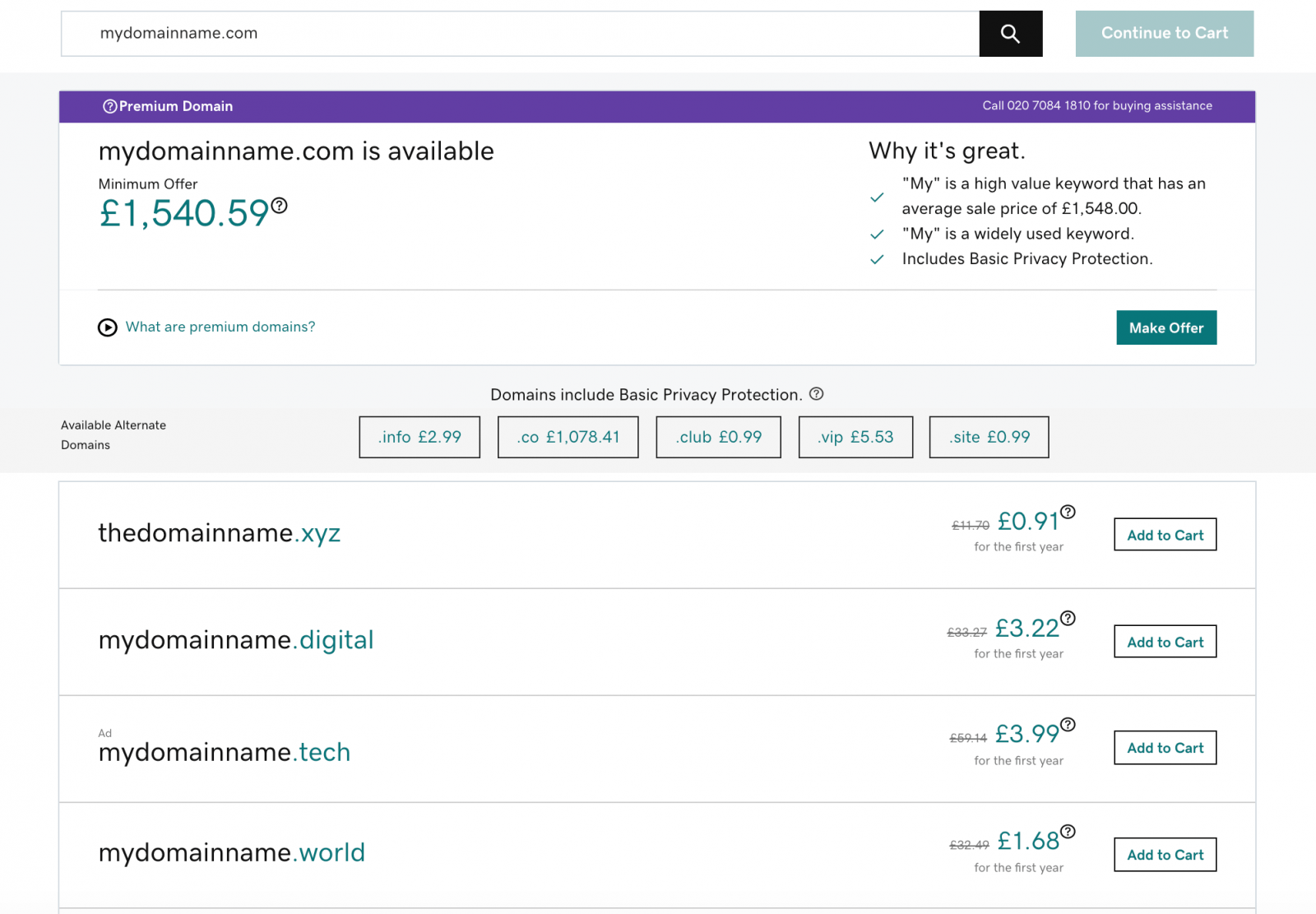
Why Does A Good Domain Name Matter?
A domain name is a visitor’s first impression of your website. A unique and memorable domain name will stick with website visitors and encourage them to come back.
A well-thought-out domain name can make a lasting positive impression and give you control over your online identity and presence. It’s critical to choose your domain name carefully and thoughtfully because it:
- Defines your brand: A domain name is a branding opportunity. Choosing the right domain name can boost brand recognition, brand identity and contribute to a positive online reputation.
- Communicates your purpose: A unique domain name can give new visitors an immediate idea of what your website and business are all about.
- Gives you authority: A registered domain name lets your prospects and leads know that your business is a legitimate one, while hosting your website content on an informal third-party platform may seem unprofessional and sloppy.
- Makes your business searchable: A domain name that is straightforward, creative and doesn’t use numbers and hyphens is not only easier to remember but is also likely to pop up in search results first.
- Affects SEO for the better: Keywords appropriate to your niche in your domain name can help SEO rankings. Also, shorter domain names fare better in search results than long ones.
- Gives you control over your digital presence: Owning a unique domain name allows you to set up your website with any hosting company and move your content anywhere in the world. Also, registering several variations of your ideal domain name that searchers are likely to type in is a good idea. That way, by making your website findable in multiple ways, your online identity remains exclusively yours.
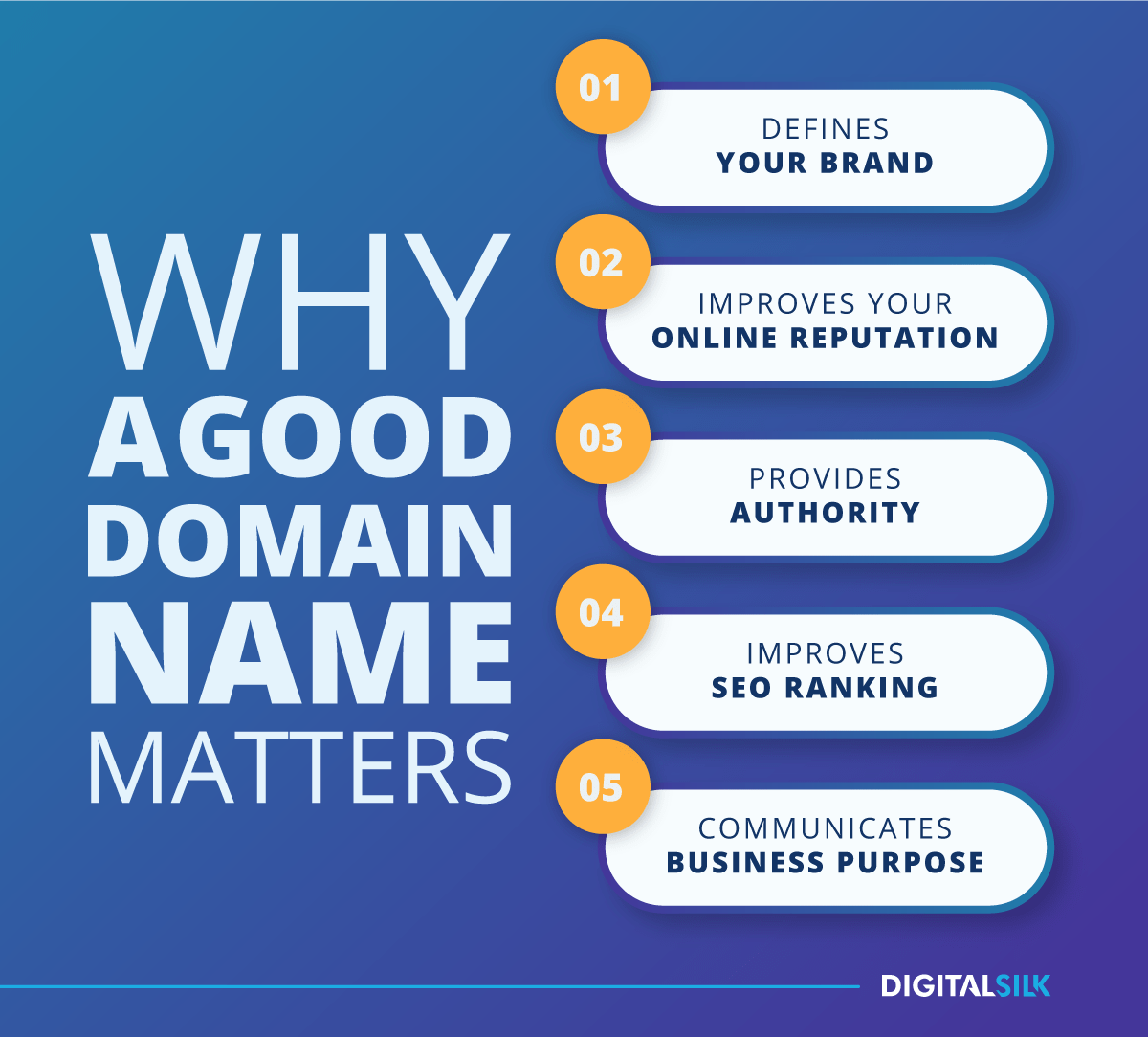
How To Choose A Domain Name: Key Takeaways
When thinking about how to choose a domain name for your online business, follow these steps:
- Choose a brandable name, not a generic one
- Keep it short
- Make it easy to type and remember
- Choose your domain extension
- Pick an alternative top-level domain that you can redirect to the primary domain
- Register misspelled versions of your domain name
- Use keywords that reflect your niche
- Choose a future-proof name
- Check domain name generators for ideas
- Check the domain’s availability
Choosing the right domain name for your website is vital, because it:
- Increases brand recognition and identity
- Contributes to a positive online reputation
- Gives you authority and communicates your purpose
- Improves SEO
- Establishes your unique online presence
"*" indicates required fields


